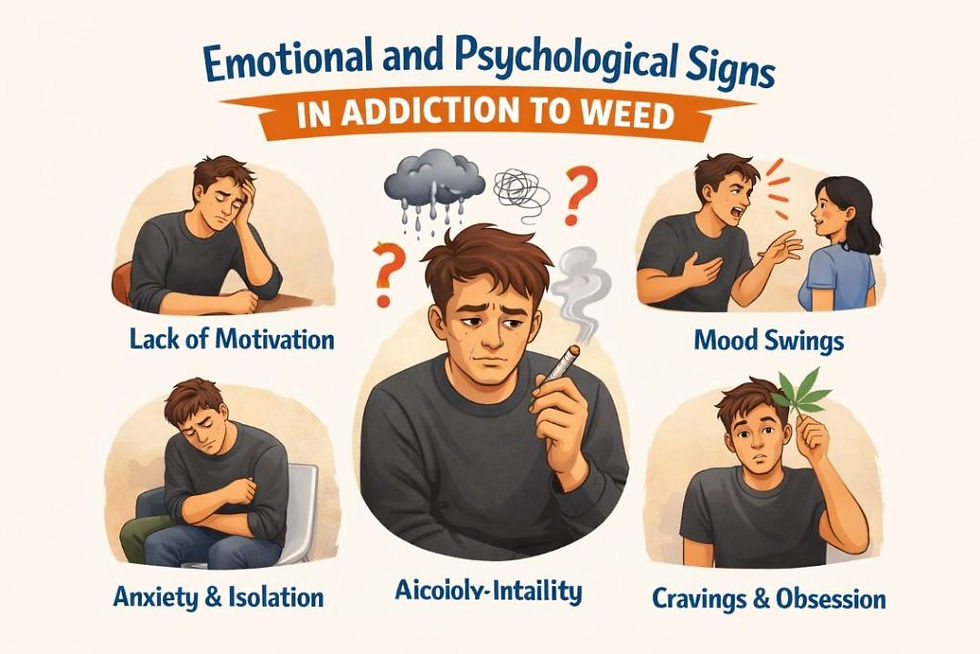5 Key Symptoms of Schizoaffective Disorder: Understanding This Complex Condition
- Felicia Parris

- Aug 6, 2024
- 2 min read
Updated: Aug 8, 2024
Schizoaffective disorder is a complex mental health condition characterized by a combination of symptoms from both schizophrenia and a mood disorder, typically bipolar disorder or major depressive disorder. It can be a debilitating condition, significantly impacting a person's daily life. If you suspect yourself or someone you know might be experiencing schizoaffective disorder, understanding the key symptoms is crucial.
What are the Different Types of Schizoaffective Disorder?
There are two main types of schizoaffective disorder, differentiated by the predominant mood episode:
Bipolar type: This type involves episodes of both mania (elevated mood, racing thoughts, increased energy) and depression, along with psychotic symptoms.
Depressive type: This type is characterized by predominant depressive episodes alongside psychotic symptoms.

5 Key Symptoms of Schizoaffective Disorder:
Psychotic Symptoms: These symptoms are a hallmark of schizophrenia and can be quite distressing. They include:
Hallucinations: Experiencing sensory perceptions that aren't real, such as hearing voices, seeing things that aren't there, or feeling sensations without an external cause.
Delusions: Fixed, false beliefs that persist despite evidence to the contrary. These delusions can be persecutory (feeling someone is out to get you), grandiose (inflated sense of self-importance), or bizarre (completely illogical beliefs).
Disorganized thinking and speech: This may manifest as rapidly jumping between topics, rambling, or difficulty forming coherent sentences
Mood Episodes: Depending on the type of schizoaffective disorder, individuals experience either bipolar or depressive episodes:
Bipolar episodes: These involve periods of abnormally elevated mood (mania) or severe depression that last for at least a week (or any duration requiring hospitalization).
Mania: Symptoms of mania include excessive energy, racing thoughts, pressured speech, decreased need for sleep, poor judgment, and impulsive behavior.
Depression: Symptoms of depression include persistent sadness, loss of interest in activities, changes in appetite and sleep, feelings of worthlessness, and suicidal thoughts.
Disorganized Behavior: This can manifest as:
Difficulty performing daily tasks like getting dressed or hygiene routines.
Agitated or inappropriate behavior in social settings.
Catatonic behavior: This involves periods of reduced responsiveness to the environment, such as staying motionless for extended periods.
Negative Symptoms: These are a reduction in normal emotional and social functioning, including:
Avolition: Lack of motivation or initiative.
Alogia: Speech that is impoverished or lacking in content.
Anhedonia: Inability to experience pleasure.
Blunted affect: Reduced emotional expression in facial expressions or voice tone.
Social and Functional Impairment: Schizoaffective disorder disrupts a person's ability to function in daily life. This can include:
Difficulty maintaining relationships.
Poor performance at school or work.
Problems with self-care activities.
Difficulty managing finances.
It's important to note:
The severity and specific combination of symptoms can vary greatly from person to person.
These symptoms can be episodic, meaning they may come and go over time.
Schizoaffective disorder is a complex condition, and a qualified mental health professional should make a diagnosis.
For more detailed information on schizoaffective disorder, treatment options, and how to support someone you care about, visit Deland Treatment Solutions Call us at (386) 866-8689 Start healing now!



Comments